
Joni Mitchell peaked in the 1970s with a terrific sequence of albums, particularly from 1971’s Blue to 1976’s Hejira. But she also released six studio albums in the 1980s and 1990s. None of these compositions would force their way into my favourite 10 Joni Mitchell songs; her songs are longer and soaked in adult-contemporary arrangements, but her sharp lyrical insights and classy chord changes are still present in her later work. Mitchell’s had a quiet 21st century, with only 2008’s disappointing Shine being her only album of new material.
The timing of this post seems appropriate, given that one of Mitchell’s most valuable collaborators from this era recently passed away. Saxophonist Wayne Shorter, known for his work with jazz-fusion stars Weather Report, recently died at the age of 89, and he’s featured on many of the songs on this list. An even more crucial creative partner was bassist Larry Klein, Mitchell’s husband for much of this period.
Enjoy these ten selections from Mitchell’s underappreciated 1980s and 1990s.
Ten Best Joni Mitchell Songs After 1980
#10 Two Grey Rooms
from Night Ride Home, 1991
Mitchell wrote the music for ‘Two Grey Rooms’ back in 1982 – it was originally an instrumental titled ‘Speechless’. She quickly recorded the instrumental in one take, on a piano that was labelled out of bounds. She recorded a wordless vocal with it, but it took her another seven years to find the lyrics to go with it.
It’s a story of obsession…about this German aristocrat who had a lover in his youth that he never got over. He later finds this man working on a dock and notices the path that the man takes every day to and from work. So the aristocrat gives up his fancy digs and moves to these two shabby grey rooms overlooking this street, just to watch this man walk to and from work. That’s a song that shows my songs aren’t all self-portraits.
Joni Mitchell, Mojo Magazine, 2019
#9 No Apologies
from Taming the Tiger, 1998
A childhood survivor of polio, the aftereffects stopped Mitchell from playing the guitar conventionally. Instead, she employed a multitude of alternate tunings, making it difficult for her to play live – she retired from touring in 1983. For 1998’s Taming the Tiger Mitchell used a guitar synthesizer, the Roland VG-8, and its atmospheric sound is prevalent on Taming the Tiger.
Tire skids and teeth marks
What happened to this place?
Lawyers and loan sharks
Are laying America to waste
#8 Come In From The Cold
from Night Ride Home, 1991
After chasing synth-heavy textures in the 1980s, Night Ride Home resembles Mitchell’s acclaimed 1976 album Hejira. Her then-husband Larry Klein plays jazzy fretless bass that recalls Jaco Pastorius, while Mitchell’s acoustic guitar. Mitchell enjoyed an artistically successful 1990s, but she doubted herself as a commercial force. “The question now is whether people can enjoy the singing of a middle-aged woman, even though the consensus is that if you don’t evoke wet dreams, you’re in trouble.”
Back in 1957
We had to dance a foot apart
And they hawk-eyed us from the sidelines
Holding their rulers without a heart
#7 The Beat of Black Wings
from Chalk Mark in a Rain Storm, 1988
‘The Beat of Black Wings’ is about Post Traumatic Stress Disorder. It’s written about a character named Killer Kyle, who’s dealing with the loss of his unborn child and the aftermath of his service in Vietnam. Like 1985’s Dog Eat Dog, Mitchell delves into 1980s textures on Chalk Mark in a Rain Storm, but she’s more adept at it here. Ben Orr, from The Cars, is on backing vocals – Klein was producing an album for him at the time.
Keep the drinks comin’, girl
‘Til I can’t feel anything
I’m just a chalk mark in a rainstorm
I’m just the beat of black wings (the beat of black wings)
#6 Nothing Can Be Done
from Night Ride Home, 1991
‘Nothing Can Be Done’ was written around a Larry Klein bassline. David Baerwald provides backing vocals – he went on to work with Sheryl Crow on the sessions that became her debut album, Tuesday Night Music Club.
Don’t start
My heart
Is a smoking gun
Oh, and nothing can be done
#5 How Do You Stop?
from Turbulent Indigo, 1994
Unusually for Mitchell, ‘How Do You Stop?’ is a cover. It was written by Dan Hartman and Charlie Midnight and was a hit for James Brown in 1986. R&B vocalist Seal provides smooth backing vocals, and smooth backing dance moves in the video.
How do you stop a runaway train?
How do you stop the driving rain?
How do you stop the ripening corn?
How do you stop a baby being born?
#4 The Tea Leaf Prophecy (Lay Down In Your Arms)
from Chalk Mark in a Rain Storm, 1988
Mitchell wrote ‘The Tea Leaf Prophecy’ about her parents’ war-time romance – her mother was actually named Myrtle McGee, but otherwise, it’s true to life. Wendy and Lisa from The Revolution are on backing vocals, and they’re a key part of the song’s appeal.
Newsreels rattle the Nazi dread
The able-bodied have shipped away
Molly McGee gets her tea-leaves read
You’ll be married in a month they say
“These leaves are crazy!
Look at this town there’s no men left!
Just frail old boys and babies
Talking to teacher in the treble clef”
#3 Chinese Café/Unchained Melody
from Wild Things Run Fast, 1982
Chinese Café is written as a dialogue between Mitchell and a friend named Carol. It’s nostalgic – it uses elements of ‘Unchained Melody’, while Mitchell sings about growingup.
Christmas is sparkling
Out on Carol’s lawn
This girl of my childhood games
With kids nearly grown and gone
Grown so fast
Like the turn of a page
We look like our mothers did now
When we were those kids’ age
In the first verse she sings about the child she gave up for adoption in the 1960s, also the subject of ‘Little Green’ from Blue. “And my child’s a stranger/I bore her/But I could not raise her” are heartbreaking, but the double meaning of “bore her” is clever.
#2 Impossible Dreamer
from Dog Eat Dog, 1985
Mitchell changed direction for 1985’s Dog Eat Dog, embracing politics and synths. It’s the weakest album covered on this list, but ‘Impossible Dreamer’ is lovely. It’s introspective rather than preachy, while Wayne Shorter’s saxophone is beautiful, adding colour behind the soaring chorus.
In the darkest part of the night
Blue shadows conjure you, hmm
And in the brightest height of the daylight
Sometimes I blink ’cause I think I see you
Dreaming like you do
#1 The Sire of Sorrow (Job’s Sad Song)
from Turbulent Indigo, 1994
Mitchell was going through a tough time around Turbulent Indigo, divorcing Klein. She dips into the Biblical book of Job for inspiration, comparing herself to the protagonist. She also compares herself to Vincent Van Gogh on the title track and in the cover art.
Oh you tireless watcher! What have I done to you?
that you make everything I dread and everything I fear come true?
Did I miss your favourite Joni Mitchell song from the 1980s and 1990s?
Read More
30 Comments
Leave a Reply
About
Aphoristic Album Reviews is almost entirely written by one person. It features album reviews and blog posts across a growing spectrum of popular music.
Review Pages
Read about the discographies of musical acts from the 1960s to the present day. Browse this site's review archives or enjoy these random selections:
Blog Posts
I add new blog posts to this website every week. Browse the archives or enjoy these random selections:
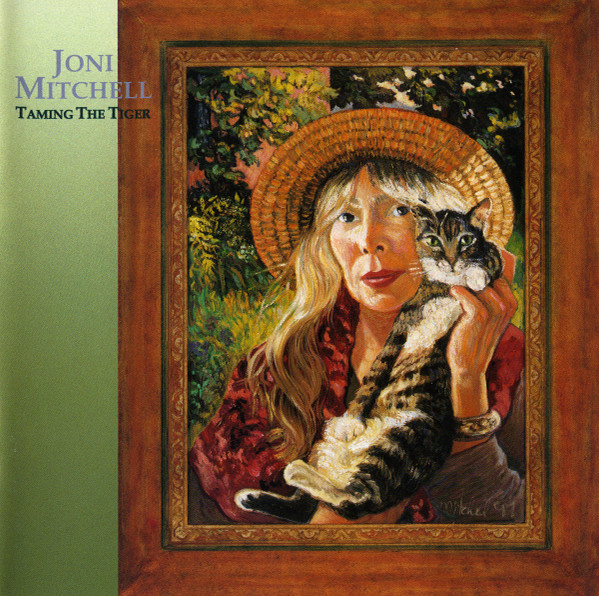

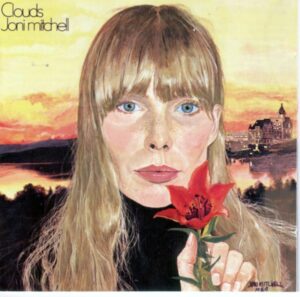
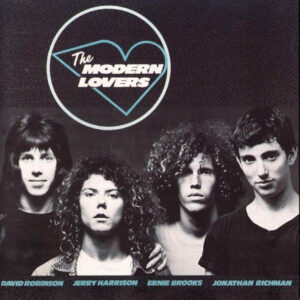
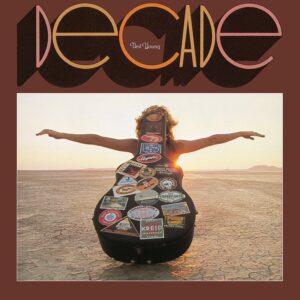
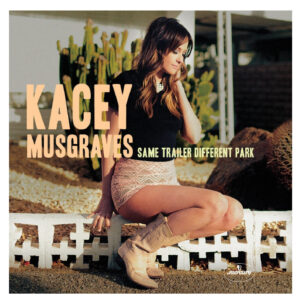


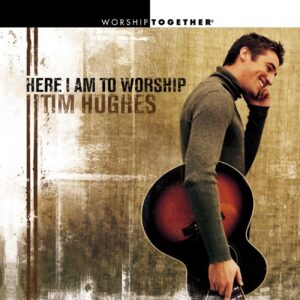
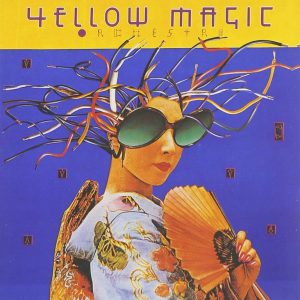

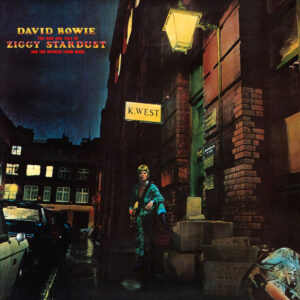

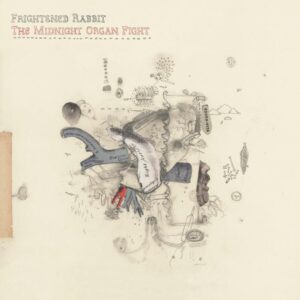

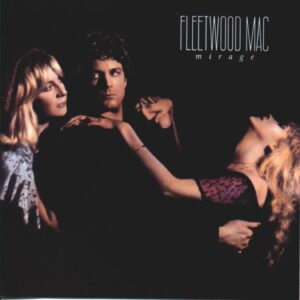





I would have put The Magdalene Laundries at the top of that list.
Thanks for writing in. I’ve always found it a little too long and slow, but one of her most interesting lyrics.
This is a good one. I’m gonna do a list when I get to work. I haven’t read yours yet.
Spoiler – we didn’t have much in common.
Corrina, Corrina (Bird That Whistles)
Sunny Sunday
Cool Water
Chinese Cafe
Turbulent Indigo
Tea Leaf Prophecy
Moon at the Window
Yvette in English
The Beat of Black Wings
My Secret Place
Peter Gabriel duet!
Two of mine are cover songs and now that I think about it I don’t know if you’re including those. But I don’t see why not, right?
Yup, covers are fine. Yvette in English is good, Turbulent Indigo is clearly her best album from those two decades.
It’s really strange but I like just as many on Chalk Mark as on Turbulent Indigo. They’re both about half and half for me. Everybody thinks it’s her worst album though. But it’s a zillion times better than Dog Eat Dog. And Wild Things Run Fast. And Night Ride Home only has maybe two or three that I like.
Chalk Mark is far from her worst IMO, much stronger than Dog Eat Dog.
Good idea for a list in limiting it to the 80s/90s content – admittedly I’m not at all familiar with this Joni era. Nice to have a starting point here with these 10 tracks!
I thought about putting a couple of songs that are on your list, like Sire of Sorrow and Two Grey Rooms. And Impossible Dreamer, cuz I think it was probably the best song on that album. The only one I don’t like on your list is No Apologies cuz I think she’s cringey when she tries to do “important” political songs. But I do like Tea Leaf Prophecy though cuz the music is just so nice. I never knew she did videos for some of those songs. But I think I did see a video for Good Friends with Michael McDonald. Unless I just imagine he was in it because he sings on the record.
I have to admit…I know her 70s music much more… I did know 5 of these songs…which is more than I thought. I’ll use these 10 to listen to.
Knowing 5 is pretty impressive – I don’t think I knew that many until I started reviewing her albums from that era.
Thanks for this! I don’t know many of these songs but she’s a national treasure here.
She also wrote the “Woodstock” song. I’m sure you knew that.
There’s a very recent long interview with her and Sir Elton.
She didn’t go to Woodstock, just watched it on the news.
No, but she composed the CSNY “Woodstock” song. I’m fairly certain.
She sure did. The CSNY version is better though, unusual for Joni.
Like some other commenters, I’m not very familiar with much of her work after 1980, but many of these songs are beautiful.
Thanks for listening. She was really good in the 1980s and 1990s, just her earlier stuff is amazing so it’s hard to compete with it.
‘Good Friends’, ‘Be Cool’ and ‘My Secret Place’ might also be there or thereabouts for me but a good list.
There’s been a lot of love for Chalk Mark in a Rain Storm in the comments.
The only album from that era I’m familiar with is Chalk Mark. I focused on other tunes from it than the ones you included here and so am happy to learn what these are about.
That’s right. The best ones are on that album.
I really like how she has different guest singers on each one.
I didn’t realize Ben Orr was in Beat of Black Wings until I was researching this article.
Thanks for listening!
You’re welcome!
Nice list and good idea to focus on Mitchell’s post-’70s songs. I only knew “Chinese Café/Unchained Melody”, which I love, and “How Do You Stop”, though it was the original by James Brown. Based on your description, it sounds like “Night Ride Home” is an album worthwhile exploring if one likes “Hejira”, which I do!
Turbulent Indigo is my favourite from the period, but Night Ride Home sounds more like Hejira.